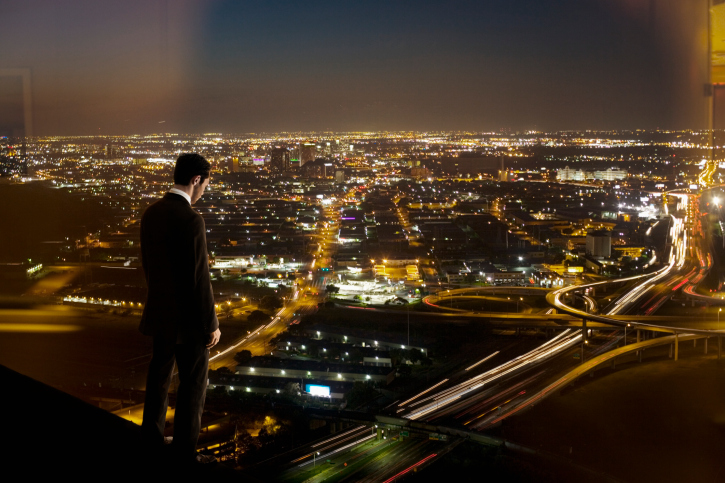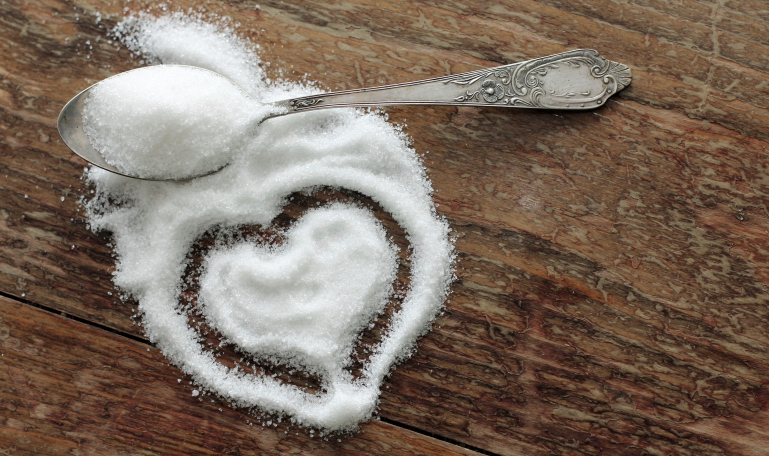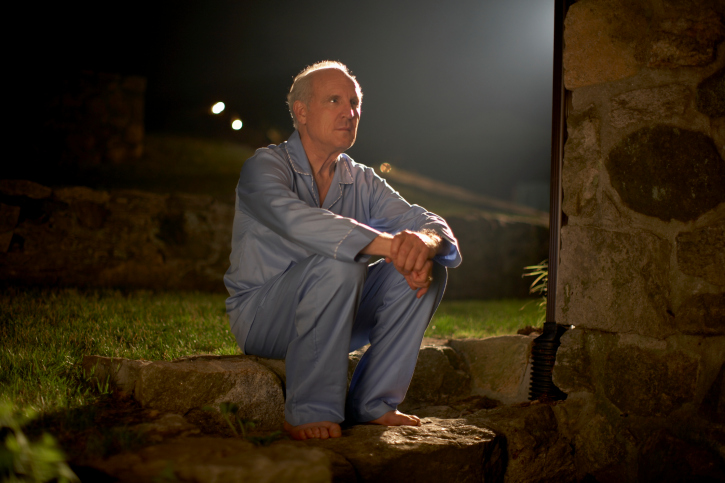 Weird Stuff
Weird Stuff  Weird Stuff
Weird Stuff  Mysteries
Mysteries 10 Tragic Disappearances and Deaths in Joshua Tree National Park
 History
History 10 Ways Childhood Really Sucked in the Old West
 Music
Music 10 Name Origins of Famous Bands from the 1990s
 Religion
Religion 10 Biggest Turnarounds by the Catholic Church
 Weird Stuff
Weird Stuff 10 Unbelievable Times Laws Had Unintended Consequences
 Humans
Humans Ten Historic Women Who Deserve Way More Credit Than They Got
 Movies and TV
Movies and TV 10 Films That Spawned Major Lawsuits
 History
History Ten Times Towns Were Wiped Off the Face of the Earth
 Creepy
Creepy 10 of the Most Disturbingly Haunted Public Houses in the UK
 Weird Stuff
Weird Stuff 10 Niche Subcultures That Are More Popular Than You Might Think
 Mysteries
Mysteries 10 Tragic Disappearances and Deaths in Joshua Tree National Park
 History
History 10 Ways Childhood Really Sucked in the Old West
Who's Behind Listverse?

Jamie Frater
Head Editor
Jamie founded Listverse due to an insatiable desire to share fascinating, obscure, and bizarre facts. He has been a guest speaker on numerous national radio and television stations and is a five time published author.
More About Us Music
Music 10 Name Origins of Famous Bands from the 1990s
 Religion
Religion 10 Biggest Turnarounds by the Catholic Church
 Weird Stuff
Weird Stuff 10 Unbelievable Times Laws Had Unintended Consequences
 Humans
Humans Ten Historic Women Who Deserve Way More Credit Than They Got
 Movies and TV
Movies and TV 10 Films That Spawned Major Lawsuits
 History
History Ten Times Towns Were Wiped Off the Face of the Earth
 Creepy
Creepy 10 of the Most Disturbingly Haunted Public Houses in the UK
10 Surprising Ways The Modern World Is Making Us Sick
Everything in moderation, as the old adage goes. As it turns out, that couldn’t be more accurate, as research continues to shed light on how the modern world is damaging our health. We might be living longer today than our ancestors did, but the current era isn’t as health-friendly as we might think.
10Feeling Guilty Can Damage Your Health

Every January, people around the world resolve to leave their bad habits behind and embark on a journey of self-improvement as the new year begins. Then, a few weeks later, everyone starts to feel a little guilty for not following through.
But while a little guilt can encourage someone to make positive changes, too much guilt is a different story. Feeling guilty isn’t just unpleasant—it could be causing damage to your immune system. Researchers from Hull University found that people who felt guilty about their favorite activities had decreased levels of the antibody immunoglobulin A in their saliva. So if two people like to unwind with a box of wine and some trashy reality shows, but only one feels guilty about it, then the guilty person is more likely to catch viral and bacterial infections. That means your favorite “guilty pleasure” could be the reason you seem to catch colds more often than someone who just calls it “pleasure.”
9Light Pollution

According to astronomers, the majority of Americans under 40 have never experienced true darkness. Urban areas experience a phenomenon called “sky glow,” where artificial light is scattered by water droplets, creating a dome of light over the city. Even inside our own homes, the little lights on electronics like alarm clocks and televisions stay on 24/7—and our bodies just weren’t built to handle that. In fact, light pollution in the developed world is now so bad that it’s damaging our health. According to physicist Eric Vandernoot, the human body is hardwired for a cycle of light and darkness. Overuse of light in the evening is connected to a number of health problems, including increased risk of diabetes, obesity, depression, prostate cancer, and breast cancer.
Sleep disorders are another big problem. In fact, light pollution may have actually changed the entire way we experience sleep. Before the industrial revolution, it was common for people to sleep for two periods of around four hours each, separated by one to three hours “of quiet wakefulness.” Even today, studies have shown that people tend to revert back to this sleep pattern once light pollution is taken out of the equation.
And even if you buy blackout curtains and cover those flashing LEDs, you might still be in danger from excess light, since the streetlights are still on outside. Turning streetlights off has actually been found to drastically reduce crime (even criminals need to be able to see). Of course, that might not be much comfort to anyone trying to find their way home in the pitch dark, but at least they won’t get mugged.
8Added Sugar Is Worse Than You Realized

Sugar itself isn’t bad for you—glucose is essential to powering the body, especially the brain. The problem is that people are now consuming more sugar than ever, and you can definitely have too much of a good thing. And while our ancestors got most of their sugar from fruits and grains, these days most of our sugar is added to various processed foods—the average American eats 27.5 teaspoons of added sugar a day. It’s hard to cut back, too—the brain has a built-in trigger to let you know when you should stop eating and sugar consumption makes it less effective over time.
It’s only relatively recently that we’ve started to realize just how bad too much sugar can be for you. In the 1970s, when the public became concerned about fat in foods, manufacturers simply replaced fat with sugar. Since then, sugar consumption has shot up worldwide. Which is unfortunate, since sugar is now linked to high cholesterol, diabetes, obesity, premature aging of the skin, dementia, brain damage, poor metabolism, and liver damage. Added sugar might even be damaging to our very DNA. In fact, some scientists now regard sugar as a problem potentially as damaging as alcohol and tobacco.
7Climate Change

We already know that global climate change is making Mother Earth sick, but it may also cause major health issues in humans. As our oceans get warmer, toxic algae blooms will increase in likelihood, area, and duration. Algae like Alexandrium catenella can contaminate seafood and cause everything from vomiting to death by paralysis.
Meanwhile, as the Earth gets drier, more dust will be blown into the ocean, spurring the growth of dangerous bacteria—poisoning caused by bacteria of the genus Vibrio in seafood is already up 85 percent since 1996. Rapid urban growth means that many sewer systems are already close to overflowing and contaminating our water sources—in Milwaukee, it currently only takes 4.3 centimeters (1.7 in) of rain a day for this to happen. As climate change makes flooding more likely, this could become a real problem. Between the flooding and the increased bacterial growth in the oceans, don’t be surprised if water-borne diseases make a comeback in the developed world.
6Lack Of Sleep

It might be a cliche, but in our fast-paced modern world many people just don’t get enough sleep. And researchers are increasingly concerned about just how dangerous that might be. In fact, men with chronic insomnia who sleep less than six hours per night are substantially more likely to die young than normal sleepers. In one study, 51.1 percent of male insomniacs were dead within 14 years, as opposed to just 9.1 percent of regular sleepers. Oddly, this only appears to affect men—women with chronic insomnia have only slightly higher mortality rates than average. That might be because men are more likely to suffer from severe insomnia than women, even though women are more likely to have insomnia overall.
While insomnia itself isn’t deadly, it will slowly wear a person down by not allowing enough sleep for the body to rest, recover, and revitalize, and long-term sleep loss is now known to cause irreversible brain damage by killing off neurons. Even just working night shifts can badly damage your health. There is also no such thing as being able to “catch up on sleep”—taking naps on the weekend won’t make up for lack of sleep during the week.
5Phones And Tablets

Of course, trouble sleeping isn’t helped by a smartphone buzzing through the night because you forgot to set it to silent—and that’s only the tip of the iceberg. Even if you seem to get enough sleep during the night, using bright electronics like phones, tablets, and e-readers right before bed can really mess with your body. Harvard Medical School conducted a study where people would read a real book before bed for five days and then use an iPad for the next five days. Reading on an iPad made it substantially more difficult for people to fall asleep. Once they did nod off, they experienced less REM sleep and were thus less alert in the morning.
On a cellular level, participants who used an iPad before bed were found to have delayed the release of the sleep hormone melatonin by around 90 minutes. The specific kind of light given off by electronic devices confuses our internal clock by affecting the circadian pacemakers in our brains. According to PEW Research, 61 percent of Americans aged 18–29 reported keeping their cell phones next to the bed in order not to miss updates, calls, or texts during the night. But if you really do need a tech bump before bed, put down the smartphone and opt for something like the original Kindle, which doesn’t emit light.
4Suppressing Anger

Being unwilling to engage in a constructive argument about something that’s bothering you can wreak havoc on your health. Holding in anger increases stress, which in turn shortens lifespans. There is such a thing as healthy anger and it can be an effective coping mechanism. Anger is also an adaptive trait that can encourage risk-taking. On the flip-side, chronic anger expressed in explosive bursts is linked to high blood pressure, a weak immune system, strokes, cancer, heart disease, and digestive issues. A study by the University of Michigan found that couples who suppressed their anger had a higher mortality rate than couples who argued their problems out.
Learning to manage anger and conflict effectively is vital to health, but many people don’t understand how to deal with their anger, repressing it and effectively punishing themselves for their feelings. Psychologists say that it is not uncommon for people to experience low self-esteem because they deal with anger ineffectively—which can in turn have disastrous consequences for relationships, work performance, and mental health.
3Antibiotics Can Kill Helpful Bacteria

The development of antibiotics in the 20th century was one of the most important breakthroughs in human history—but it came with some unintended side effects. Humans are far more dependent on bacteria than science realized until quite recently (there are 10 times more bacterial cells than human cells in your body) and antibiotics tend to kill off the good bacteria with the bad. For example, bacteria in the human gut helps to digest food and boosts the immune system. That’s why a course of antibiotics often results in diarrhea and other stomach problems.
Researchers from New York University have also found that giving antibiotics to newborn mice made them more likely to develop metabolic disorders later in life. At that age, their guts were still being colonized by bacteria and the antibiotics disrupted this process—with long-term implications. The study suggests that human babies who receive antibiotics might be more prone to obesity and diabetes once they grow up. Of course, in most cases, the potential consequences of using antibiotics are very mild compared to the alternatives. Used judiciously, antibiotics are still one of medicine’s most important tools.
2Noise Pollution

Obviously, a sudden loud noise could damage your hearing, but what about the constant hum of noise that surrounds us every day? Spinning hard drives, passing cars, sirens in the distance, whirling fans—it is almost impossible to escape noise pollution in the modern world. Every year, around 30 million Americans are exposed to dangerous levels of noise as part of their job. But even people who don’t experience occupational noise hazards suffer from secondhand noise pollution. Hearing loss can lead to communication issues, discrimination, poor performance at work and school, loneliness, and depression.
Low-frequency sounds, such as vibrations caused by passing traffic, can have a direct effect on health. People living in areas with elevated noise levels have correspondingly high levels of stress hormones, and the World Health Organization has warned that noise pollution is a risk factor in developing heart disease. Noise pollution can also cause high blood pressure, sleeplessness, breathing problems, cardiovascular issues, increased heart rates, and even brain changes. Studies have also shown that high levels of noise can badly impact young children, having a significant negative effect on cognitive performance.
1Retiring

The dream for many Americans is to work hard enough to be able to retire and relax, but health-wise it isn’t that simple. Working a job you hate can damage your mental and physical health, which is pretty worrying when you consider that only 13 percent of Americans report enjoying their work. Even if you’re one of the lucky 13 percent, working too hard can still seriously damage your health. The average work week is now around 47 hours and a Gallup poll showed that 21 percent of full-time workers put in 50–59 hours a week, while 18 percent worked more than 60 hours a week.
And while working hard for retirement might sound like a good tradeoff, retirement itself can cause a decline in mental and physical health. Compared to similarly aged people who are working, retired people are up to 40 percent more likely to suffer from clinical depression. They are also 60 percent more likely to have a diagnosed physical ailment, although it’s not clear if that’s because people with medical issues tend to retire earlier anyway. The lesson is that moderation is important and the healthiest choices involve a fair balance between rest and work.
Kristance is a freelance writer and travel addict currently living in Argentina. She’s always “that person” who will bore everyone by blurting out facts awkwardly at inappropriate moments. She sometimes writes about her travel adventures on diggingtoroam.com and constantly adds ridiculous posts to instalaugh.tumblr.com. The most exciting thing that happened to her in 2014 was when Jewel retweeted her. If you want to hop on that Twitter bandwagon check out Kristance’s account.








